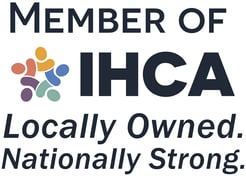People often take iron supplements to treat or avoid iron deficiency, a condition in which the body doesn’t have enough iron. Not having enough iron can also lead to decreased hemoglobin, a protein in red blood cells that carries oxygen to different tissues and organs, as well as a tired and weakened feeling. This lack of iron can happen to people of all ages, but it is most common in older people. Seniors must get the correct amount of iron to feel well and remain healthy. With companion care at home services, they may get what they need through healthy eating, but at times supplements might also be needed.
Why Are Seniors at Risk For Iron Deficiency?
Seniors may be more likely to have an iron deficiency because they eat less, can’t absorb iron from food as well, or have long-term illnesses that make them need more iron. When this happens, iron supplements may be needed to make up for deficits and improve their health.
There are many kinds of iron supplements, such as ferrous sulfate, ferrous gluconate, and ferrous fumarate. Seniors can buy these supplements without a prescription at any store that sells them. Before taking any supplement, it’s essential to talk to a doctor or nurse to determine the correct dose and length of treatment.
Pros and Cons of Iron Supplements
Seniors considering iron supplements should know the pros and cons. Iron supplements can reduce iron deficiency, increase energy, make them feel better, and help with the symptoms of anemia caused by a serious lack of iron. However, iron supplements also have some risks. Seniors may have side effects like diarrhea, sickness, or stomach pain. In rare cases, getting too much iron can cause iron overload. With the help of companion care at home, seniors can ensure they follow the instructions and the tips below when taking iron to minimize their exposure to possible adverse effects.
Consult a healthcare provider: As mentioned above, seniors should talk to a healthcare provider about their unique health needs and concerns before taking iron supplements. They can determine if seniors need iron supplements, determine the proper dosage, and monitor for side effects.
Follow the dose instructions: Iron supplements should be taken as directed. Companion care at home can assist with this through medication management.
Consider changing their food: Along with iron supplements, seniors should try to eat a balanced, iron-rich diet. Iron-rich foods include lean meats, beans, dark leafy greens, and grains with added iron. Optimizing iron levels can be done by taking supplements and changing their diet.

While seniors with iron deficiency or anemia can benefit from taking iron supplements, getting help from a professional, getting a correct diagnosis, and keeping a close eye out for any side effects are essential. By taking these steps, seniors may be able to raise their iron levels and improve their health as a whole. Loved ones concerned about seniors’ iron levels can work with companion care at home aides to develop a plan that ensures optimum care.
Sources: https://www.ncbi.nlm.nih.gov/pmc/articles/PMC4325864/
If you or an aging loved one are considering Companion Care at Home Services in Hapeville GA please contact the caring staff at Senior Solutions Home Care. (404) 266-8773
Senior Solutions Home Care is a Trusted Home Care Agency serving Atlanta, Palmetto, Alpharetta, Chattahoochee Hills, Milton, College Park, Sandy Springs, Roswell, Hapeville, Johns Creek, and all of Fulton County.
Over the years, we have expanded, providing service in all 95 counties throughout Tennessee, and we now have a growing presence in Georgia.
Senior Solutions is recognized as a top 5% independent agency and a three-time Inc. 5000 honoree in 2018, 2019, and 2020. These types of awards matter to us because they show growth in our goal of eventually touching a million lives. We’re excited to continue that growth and to touch even more families with our commitment to quality care!
- Understanding How Deep Vein Thrombosis Affects Seniors - April 18, 2025
- The Importance of Seniors Understanding Their Medication - April 7, 2025
- Benefits of Physical Activity for Seniors - March 24, 2025



